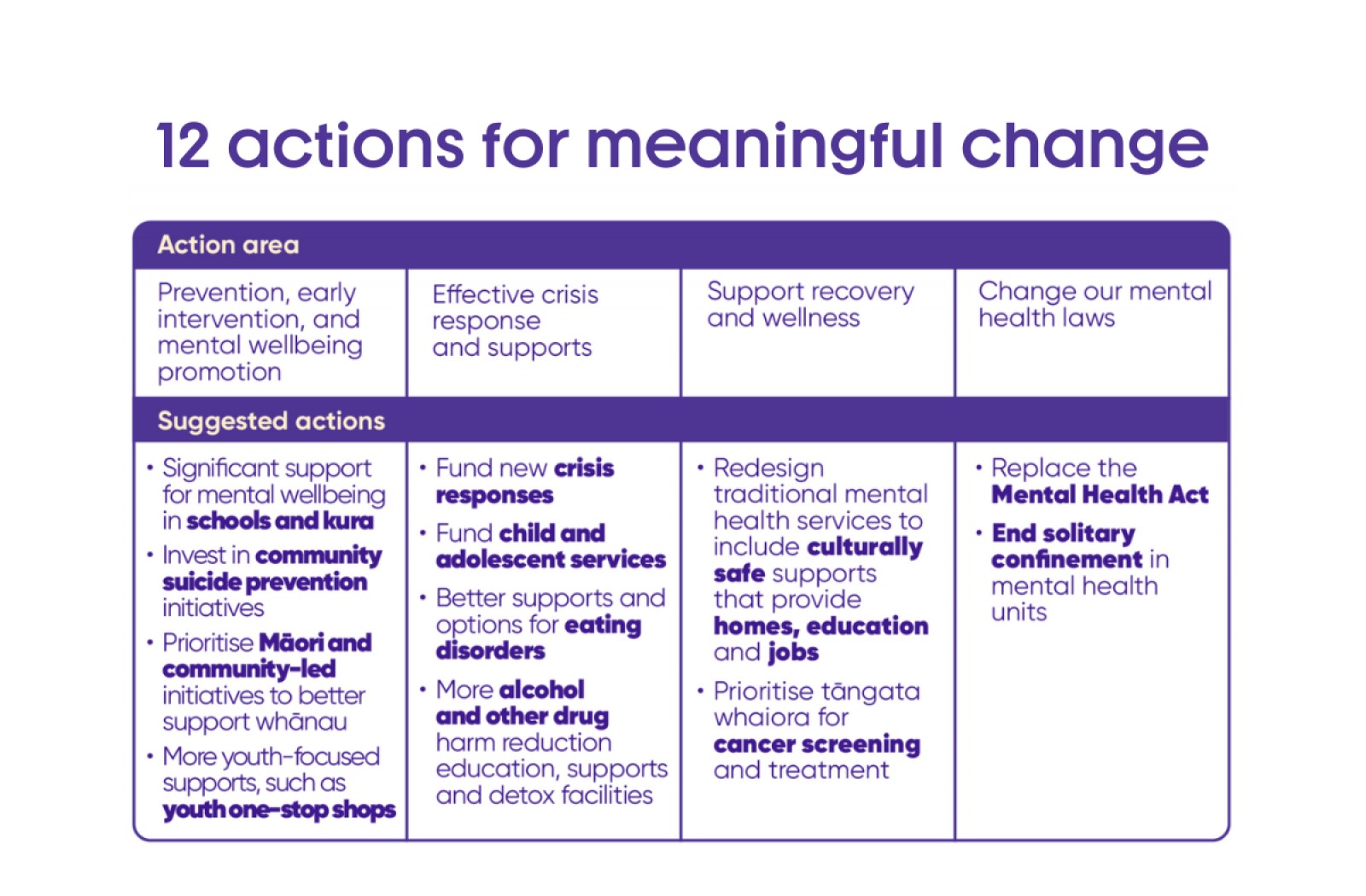We all know New Zealand’s mental health system isn’t working. The people of Aotearoa deserve better, and political parties can do better by creating good mental health policy this election.
To help, we’ve set out a four-step guide to creating good mental health policy for MPs and politicians, which includes a set of 12 actions for meaningful change that can be enacted within the first year post-election.
Want a booklet copy of this guide? You can download the booklet here, along with our 12 actions for meaningful change statement.

